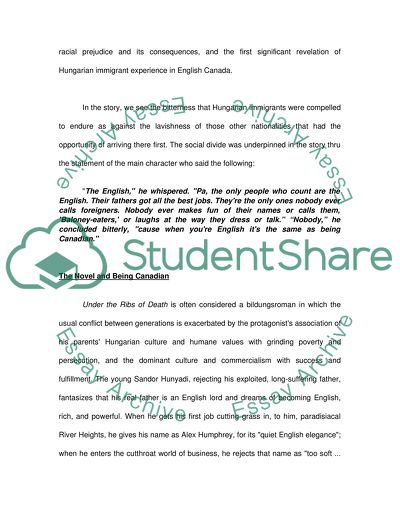Cite this document
(“Under the ribs of death and what it means to be a Canadian Book Report/Review”, n.d.)
Under the ribs of death and what it means to be a Canadian Book Report/Review. Retrieved from https://studentshare.org/sociology/1509906-under-the-ribs-of-death-and-what-it-means-to-be-a-canadian
Under the ribs of death and what it means to be a Canadian Book Report/Review. Retrieved from https://studentshare.org/sociology/1509906-under-the-ribs-of-death-and-what-it-means-to-be-a-canadian
(Under the Ribs of Death and What It Means to Be a Canadian Book Report/Review)
Under the Ribs of Death and What It Means to Be a Canadian Book Report/Review. https://studentshare.org/sociology/1509906-under-the-ribs-of-death-and-what-it-means-to-be-a-canadian.
Under the Ribs of Death and What It Means to Be a Canadian Book Report/Review. https://studentshare.org/sociology/1509906-under-the-ribs-of-death-and-what-it-means-to-be-a-canadian.
“Under the Ribs of Death and What It Means to Be a Canadian Book Report/Review”, n.d. https://studentshare.org/sociology/1509906-under-the-ribs-of-death-and-what-it-means-to-be-a-canadian.


